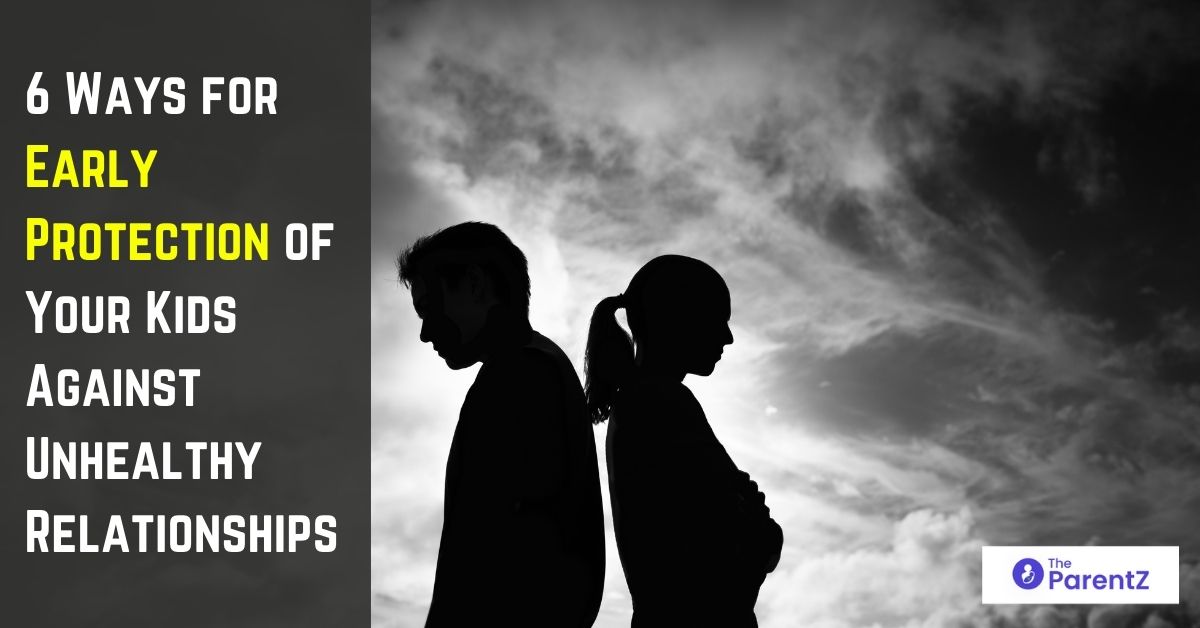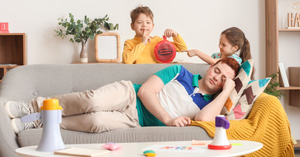Meticulous Early Childhood Parenting is the Answer to Toxic Teenage Relationships. There is endless material that tells parents how to survive teenagers, but seldom do we hear about advice for first time parents about a parent’s role in protecting their kids from toxic and unhealthy relationships. Teenage is a time of intense emotional and moral turmoil that often leads to anger issues and aggressive behaviour in adolescence, so the best time to talk about relationships is before they begin developing. Here are a few early childhood parenting life hacks to help you keep your child out of all kinds of toxic relationships before it’s too late.
Begin Early
And by early, we mean way earlier than you might think. The best time to discuss dating with your child is soon after you’ve handled their first questions about sex like a pro. It’s important for your child to relate love and romantic involvement with sexuality, but it is much more critical for them to understand what a healthy relationship is supposed to feel like before they begin developing their own ideas about relationships.
Avoid Negative Tonality
Make sure that you don’t put the idea of relationships across to your kid as an ominous thing they should be afraid to get involved in. If your talk about dating and relationships tends to focus more on warning signs your kid should be watching out for, you might unintentionally make them paranoid and they might start finding faults with everyone they date later in life. This is unhealthy for emotional development in children and may trigger or worsen mental health issues like depression in adolescence and adulthood.
Exposure to Unhealthy Relationships
Most of us know someone or the other who is stuck in a bad relationship and it is our natural instinct to try and keep the kids away from this kind of toxicity. However, we must realize that we won’t always be around to protect them from it and while ignorance may be blissful for a while, it can be devastating when reality crushes in. Don’t try to avoid letting your child see how adults sometimes misbehave because at some point in their lives, they might have to face similar circumstances in their own lives.
Express Your Opinions
We obviously wouldn’t recommend trying to ensure that your child gets to see bad relationships first-hand, but you must be mindful of how you handle it when they do happen to see something of this kind. Children are experiential sponges, they will absorb everything they see and hear; their adult life is generally a product of all they’ve learnt as kids. You may choose not to interfere in another couple’s issues, but remember that your kid is observing everything. Unless you clearly express your disapproval of it, your little son or daughter will think that such bad behaviour is normal and acceptable. Even if you don’t want to talk to them about it directly, find a way to let your child know that it is not okay even for adults to act disrespectfully.
Discuss and Encourage Self-Respect
General banter between parents and their children does not normally include a discussion on toxic and emotionally abusive unhealthy relationships. But maybe it should, in today’s age. Toxicity can exist in every kind of relationship: romantic, friendly, or even familial. Your child needs to understand the signs of a toxic relationship such as a lack of mutual respect, controlling in a relationship, and any behaviour that consistently harms their self-respect. Encourage your son or daughter to understand that even though it isn’t preferred, they’re allowed to make mistakes. It will help their self-esteem. If you’re strict even about honest mistakes, your child might end up hating himself or herself for every little mistake they make even as adults. That will ruin their self-esteem and given the way life works today, low self-esteem is the surest path down into the abyss of depression.
Lead By Example
Last but not the least, please make sure you do as you preach. There’s no point talking to your children about self-esteem and healthy relationships if you’re going to let the opposite happen to you. Like it or not, your children will most probably end up with a life strikingly similar to yours as adults. After all, actions speak way louder than words, so be mindful of what you’re doing and whether you’re following your own advice.
Waiting for your child to become a teenager before you take these steps is a really bad idea. In a teenager’s mind, almost any external help is treated as a threat to their freedom, creating problems in the communication between parents and children. It’s the toughest time to get through to your children. The time to lay out these basics for your children is right now; teenage is the time to let them figure themselves out on their own and that’s the time when they’ll need these lessons the most.
Happy parenting and good luck!









Be the first one to comment on this story.